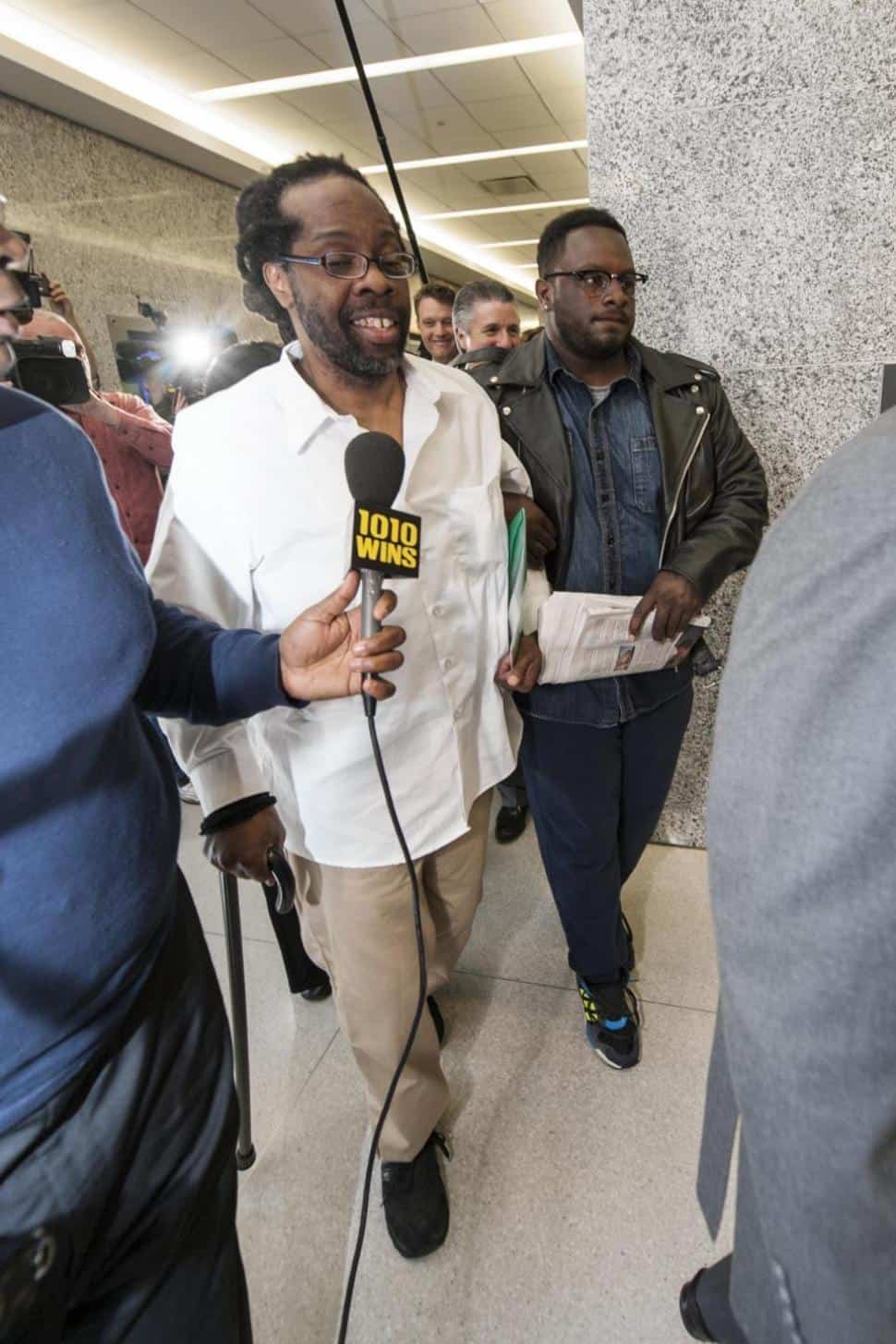
The Brooklyn district attorney’s office will ask that wrongful murder convictions be vacated for three half-brothers whose trials relied on questionable evidence produced by a now discredited homicide detective. Alvena Jennette, Robert Hill, and Darryl Austin, will be the first to be exonerated since the district attorney began reviewing 57 convictions based on the work […]
 The Brooklyn district attorney’s office will ask that wrongful murder convictions be vacated for three half-brothers whose trials relied on questionable evidence produced by a now discredited homicide detective.
The Brooklyn district attorney’s office will ask that wrongful murder convictions be vacated for three half-brothers whose trials relied on questionable evidence produced by a now discredited homicide detective.
Alvena Jennette, Robert Hill, and Darryl Austin, will be the first to be exonerated since the district attorney began reviewing 57 convictions based on the work of Louis Scarcella, The New York Times reports.
Scarcella has been accused of fabricating confessions, coercing witnesses, and failing to turn over exculpatory evidence. Last year he was blamed for the wrongful conviction of a man who served 23 years in prison. A New York Times investigation uncovered a troubling pattern in a group of Scarcella’s cases: the use of Teresa Gomez as a witness in six separate murder cases. Gomez, a crack addict, now deceased, is said to have gotten crucial details wrong, her testimony contradicting that of other witnesses. One case was dismissed because Gomez didn’t show up cross-examination. She testified against Jennette, Hill, and Austin.
The men were convicted of the 1985 murder of Ronnie Durant. When Scarcella was assigned the unsolved case, he quickly produced Ms. Gomez, who said she saw Mr. Jennette and Mr. Austin rob and kill a man. She described the scene as a wild shootout, though no gun was found other than the one that killed Durant. The first detective on the case interviewed two people who said the brothers were present but did not take part in the killing. That information was never shared with the defense, the Times reports.
Kenneth P. Thompson took office in January, after defeating Charles J. Hynes, who was district attorney for 24 years. Hynes had fought the brothers’ appeals. Last year a Conviction Review Unit was set up and that unit is now examining some 90 potential wrongful convictions: 57 of them are Scarcella cases. Thompson has assigned 10 lawyers plus investigators and support staff to the unit and last month named Harvard law professor Ronald S. Sullivan as the unit’s chief.
Scarcella, who retired in 2000, has denied any wrongdoing and neither he nor his lawyer will comment, according to the Times.


